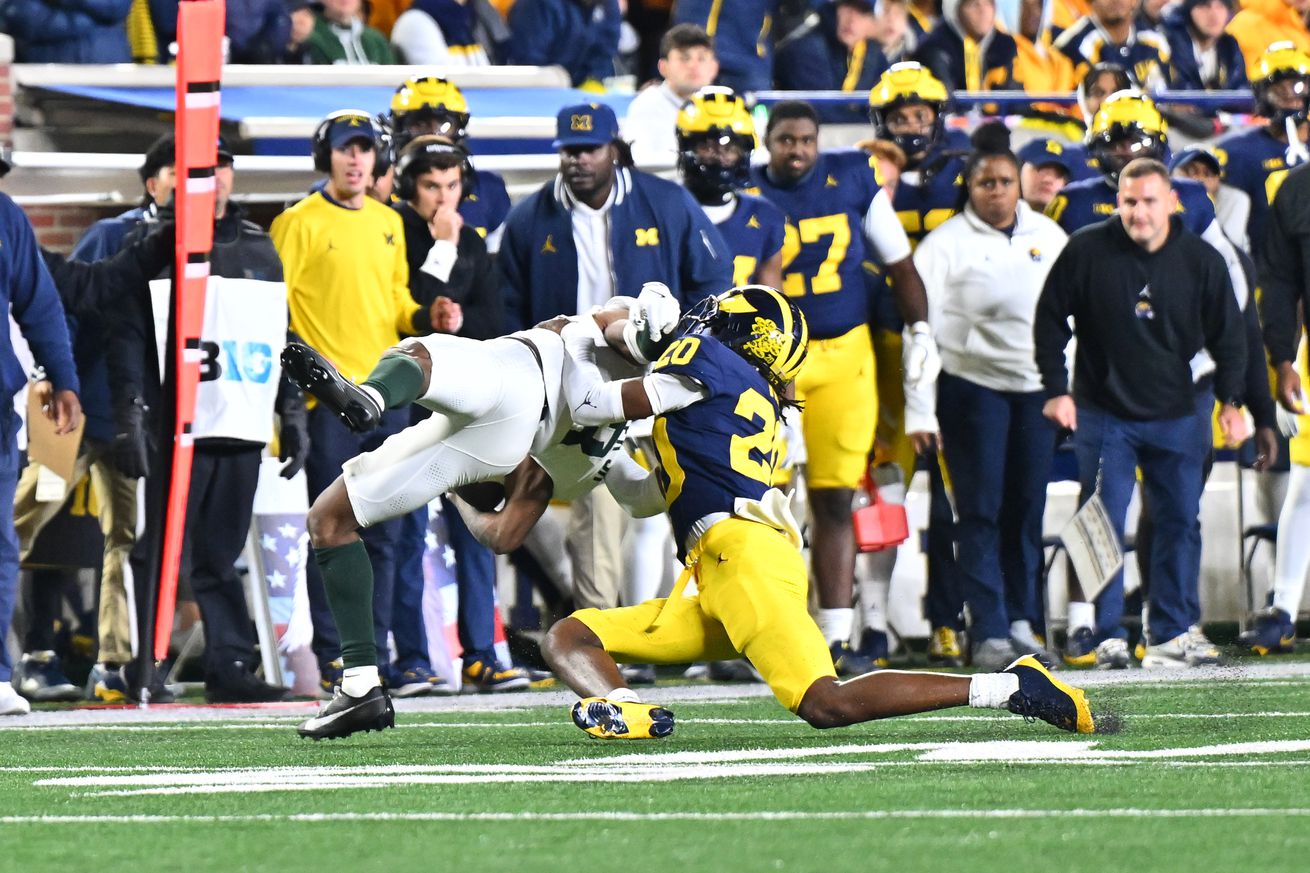
Just about every defense back is getting nickel reps for Michigan right now, highlighting the strength of the secondary heading into the fall:
Even if Bryce Underwood and Chip Lindsey do not turn the offense into the Harlem Globetrotters, the Michigan Wolverines still recognize where college football is in 2025. As teams grow increasingly modern, the emphasis remains on expanding the passing game — and while it would be exciting to see Michigan fully embrace that, the defense must be ready for opponents that already have.
Gone are the days of three linebackers camping out in the middle of the field. Today’s defenses routinely deploy (at least) five defensive backs, with increasingly complex responsibilities. Wink Martindale and LaMar Morgan understand this shift and have prioritized getting as many players involved as possible this spring, particularly at the nickel position.
Though Will Johnson, Aamir Hall, Makari Paige, and Quinten Johnson depart (as well as Ja’Den McBurrows), the secondary still has plenty of talent. Jyaire Hill and Zeke Berry closed last season strong, while Brandyn Hillman, Mason Curtis, Jacob Oden, Jeremiah Lowe, and T.J. Metcalf are firmly in the mix to contribute this fall. Add in a healthy Rod Moore and an impressive early enrollee in Shamari Earls, and Michigan has plenty of names to squeeze onto the depth chart.
Some of these players will get the nod at corner, others at safety. Some will start, and others will carve out rotational roles. But until Week 1 arrives and the two-deep is finalized, Morgan is intent on getting all of these defensive back reps at nickel. Here are a few thoughts on how that approach could benefit the Wolverines this fall.
Never too many
With Moore likely rusty after returning from a season-long injury, Michigan does not have a singular elite contributor in the secondary like Mike Sainristil or Will Johnson to build around. By cross-training multiple defensive backs at nickel, the Wolverines are leaning into a team-first approach where the load is shared. This allows for frequent substitutions and rotations in-game, but also in-season versatility if someone goes down.
Morgan’s commitment to sharing the love this spring also fosters healthy competition. The safety spot opposite Moore is wide open, and while Hill and Berry are early favorites at outside corner, nothing is guaranteed. Practicing players at multiple positions gives the defense flexibility and boosts each player’s chances of contributing. Even for those who ultimately settle elsewhere in the formation, nickel reps help sharpen instincts, communication, and football IQ.
Scheme necessity
Martindale made some adjustments after a rocky start in Ann Arbor, but the mantra of his defense is well known: aggression, pressure, and unpredictability. In this system, defensive backs cannot hide. The nickel must play a variety of coverages, blitz off the edge, and clean up messes in the middle; this is a position that demands both versatility and high-level processing.
What makes the need even more pressing is the makeup of Michigan’s current defensive front. Without game-wreckers like Mason Graham or Kenneth Grant taking up attention, the Wolverines may have to send extra rushers to generate pressure, which puts more stress on the secondary. If Martindale chooses to just rush four, then opposing quarterbacks will have cleaner pockets. Either way, the defensive backs will not have many favors handed to them, meaning anyone on the field must be ready to play at a demanding level.
Cat and mouse
Michigan may still pride itself on physicality and owning the trenches, but many of its 2025 opponents will spread the field and throw the ball relentlessly. Teams like Texas, Washington, and Oregon were happy to do so last season (as were Ohio State and Alabama, albeit less happy) and adding in opponents like Oklahoma and Maryland will not slow that trend down in 2025.
To counter that, the Wolverines need both a skilled and deep secondary, especially at nickel, where adaptability is key. Morgan and Martindale will benefit from being able to plug in different skill sets depending on matchups, while keeping fresh legs on the field. In today’s game, five trustworthy defensive backs are not just a luxury — they are a requirement. The Wolverines are making sure this spring that will not be a problem come the fall.
